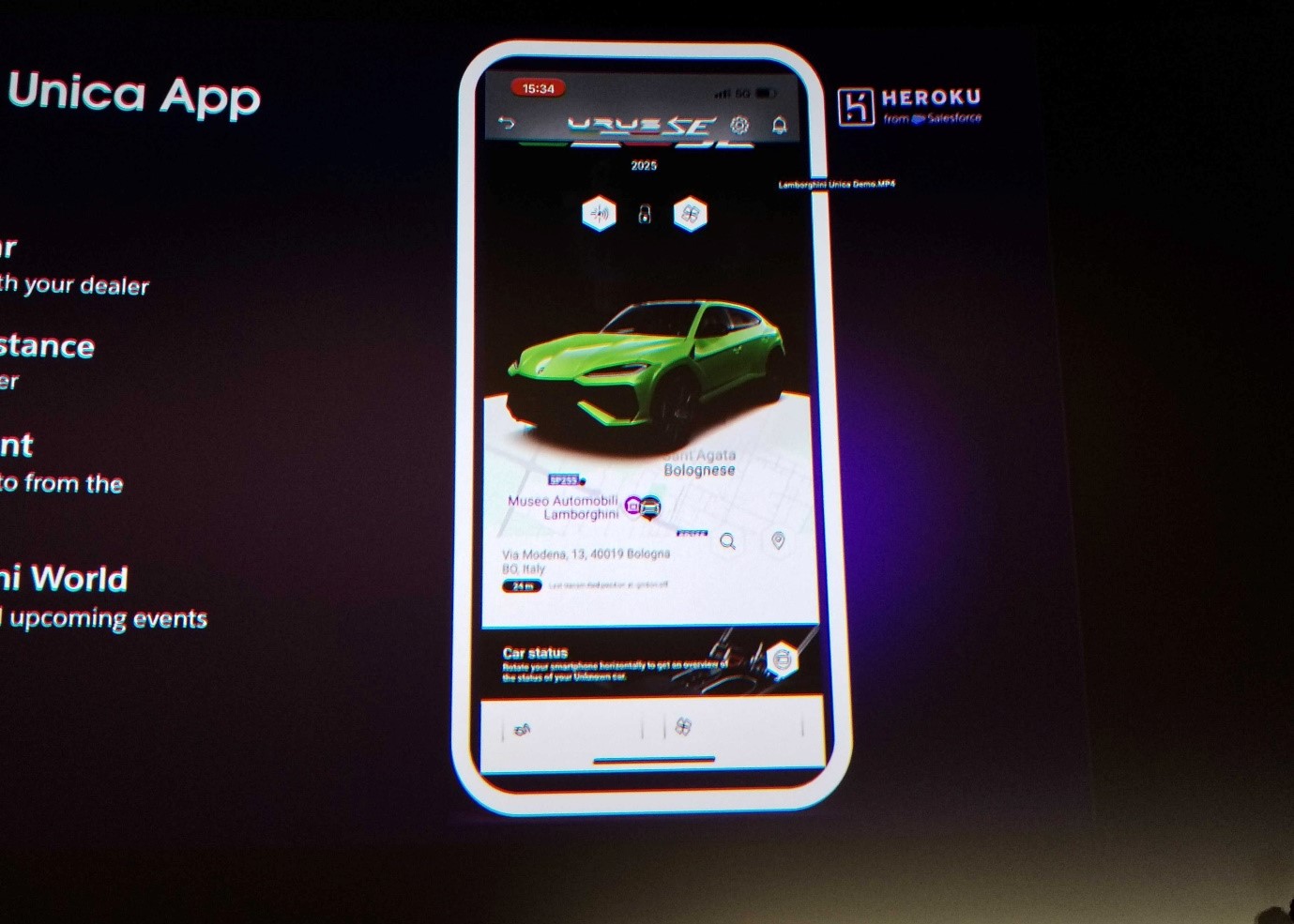GadgetWheels
Dreamforce 2024: Lamborghini puts customer inside production
The sportscar manufacturer is allowing customers to track their vehicle’s construction in real time, writes JASON BANNIER.
Lamborghini is putting customers in the driver’s seat before their car is even built. By allowing new owners to track their vehicle’s production in real time, the sportscar manufacturer uses a cloud platform-as-a-service to provide updates and photos from assembly to delivery.
Built on Heroku, the cloud platform acquired by Salesforce in 2014, this innovation was showcased at the CRM giant’s annual conference, Dreamforce 2024, in San Francisco this week. The conference is one of the world’s largest technology showcases, with over 44,000 attendees this year.
Lamborghini showed how Heroku’s focus on personalisation and integration of digital technology enhanced the customer experience. By showcasing these capabilities at Salesforce’s annual conference, the sportscar manufacturer underscores how cloud platforms like Heroku are being used to improve customer engagement and transparency in the automotive industry.
Filippo Tonutti, Lamborghini Unica product owner, said during a panel discussion that there are three pillars to the company: customisation, feeling like a pilot, and experiences.
“This is where Salesforce came to help us,” he said. “What we have done over the years is built a highly customised experience using a mobile app called Unica.”
The approach highlights the Italian sportscar manufacturer’s commitment to personalisation and customer experience.
Tonutti was accompanied by David Baliles, Salesforce distinguished technical architect, who said: “Connected devices are now extending in many fronts. We are seeing a convergence between those smart devices and the vehicles that we drive.”

Photo: JASON BANNIER
Unica development and capabilities
Unica is supported by another Salesforce solution, Lamborghini Key. This tool offers a comprehensive outline to view customer profiles. It enables Lamborghini to gain deeper insights into customer needs and deliver more tailored experiences.
A demo of the Unica app showcased how users receive personalised information, including exclusive news and content. For example, it was used to release news about the latest vehicle hours before the official launch earlier in 2024.
It enables one to customise vehicles before making a purchase (such as changing colours or wheels). Additionally, an option to select a preferred salesperson and contact options are available.
“This picture is taken inside our production line and is sent to the owner when the car is finished. Our customers are able to see their car before it is shipped,” said Tonutti.
The app also displays photos and exclusive videos explaining the cars. Customers receive a video message from the CEO and chairman, congratulating them on their new vehicle.
One can book an appointment with a dealership and specify what needs to be done, such as replacing a tyre.
“After requesting an appointment, it translates in real-time as a business opportunity on our CRM for that specific dealer. This is a glimpse of what we are offering our customers using Lamborghini Unica to let you know what is happening behind the scenes.”
Lorenzo Cavicchi, Lamborghini IT manager, said: “Heroku was a gamechanger for us. It was the right choice to let us focus on what is most important to us: the customer experience. Heroku takes care of everything on behalf of our team.”
Behind the Salesforce scenes: Heroku
Heroku plays a pivotal role in streamlining application development and ensuring seamless customer experiences.
Baliles said: “When we think about Heroku from a high level, we think about the fastest way we can go from this idea into a finished application that we can now begin to leverage. Think about things like shipping fast without sacrificing quality, or being able to scale once it’s there. I don’t want to pay attention to when people are using it, I just want it to happen.
“As we are hearing this week about Agentforce and many of the AI capabilities that Salesforce provides, this also extends in how can we push this to the next level?”
Thirteen-million apps have been created on Heroku. The platform serves 60-billion requests per day.
“High resolution is happening not only in screens, but also in software development and the data that we are having to deal with as developers.
“When we think about this, the concept of having to deal with lots of data. For example, a vehicle firing 80 different sensors every five seconds, and we want to then turn that into real-time personalisation through this omnichannel cockpit as I am driving the vehicle. How do we do that? Ultimately when we start combining the benefits of Salesforce technology, like data cloud, with the Heroku application development platform, its about taking this to a new status quo that pushes the boundaries.”
Heroku is introducing a new integration add-on that simplifies the process of connecting to Salesforce and other systems. For developers, establishing communication between these platforms requires a secure and trusted connection. The Heroku integration add-on streamlines this by making it easier to set up and manage these connections rapidly. It ensures robust security for applications running between Heroku and Salesforce, while also providing efficient management capabilities for these integrations.
* Visit Heroku’s website here.
* Jason Bannier is a data analyst at World Wide Worx and writer for Gadget.co.za. Follow him on Twitter and Threads at @jas2bann.


















